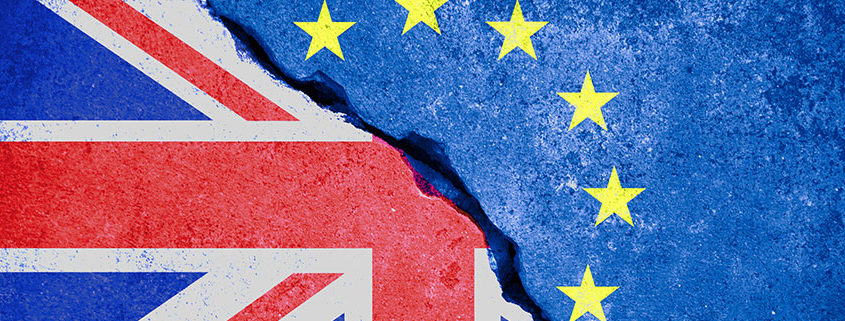Article Featured on AICPA
Uncertainty related to Brexit – the recent vote in the United Kingdom (UK) to move away from the European Union (EU) – sent shock waves throughout Europe and foreign markets. Here in the United States, investors have also expressed concern about the volatility of their portfolios.
Chances are good that some of your clients have already contacted you with questions about how this will impact their personal finances. To help you have this conversation, we sought advice from three well-known professionals: Chris Benson, CPA/PFS, L.K. Benson & Company; Jean-Luc Bourdon, CPA/PFS, BrightPath Wealth Planning, LLC; and Michael E. Goodman, CPA/PFS, Wealthstream Advisors, Inc. Here are their observations:
Sandra Truitt: What do you see as the short-term impact through Dec. 31 of Brexit on a client’s investment portfolio?
Chris Benson: Let’s admit the obvious: we don’t know how this will impact the markets in the short-term; nobody does. Everyone will speculate, but in the end that’s all it is, speculation. The unexpected result of the vote itself should be enough to prove how difficult it is to predict the future. However, this doesn’t mean the UK will be out of the EU tomorrow or even in a few months. This process will take quite a bit of time and there’s the possibility of a second vote or other measure to stop the exit.
Jean-Luc Bourdon: Markets reflect the aggregate reaction of market participants, most of which are all too human. Therefore, any bit of bad news goes through the same knee-jerk, emotional and ultimately reasonable reaction. The drama unleashed by the Brexit vote will play out over several years. Along the way, we’ll likely see cycles of surprising news repeat itself. Just remember how the Greek debt crisis played out.
Michael Goodman: Unlike the rest of the EU, the UK is not tied to the Euro. The UK has its own currency, the British Pound. Had this involved the Euro instead of the Pound, the implications would be significantly more challenging for the continent and for U.S. company earnings. In addition, it is important to note that the while this is a big problem, it is a big problem for a country that makes up less than 4% of the global economy.
Sandra Truitt: Is now the time to pull out of planned investments?
Chris Benson: Our investment philosophy has always been, and will always be, to keep a long-term focus and not overreact to short-term market events. If you’ve ever been on a boat, you know that everyone tells you to focus on the horizon to avoid getting seasick. Watching the choppy waters directly in front of you will only make you more nauseated. Even though your clients may be tempted to focus on that choppy water and short-term volatility in the markets, try to divert their eyes to long-term goals on the distant horizon.
Jean-Luc Bourdon: For the long-term investor, these dips are irrelevant because they aren’t reliably predictable and tend to have no lasting impact. Indeed, events that bring global markets down are generally followed by significant upswings, once rationality sets in and the world finds a way to go on. Meanwhile, many fearful investors who exit the markets miss the recoveries. By contrast, long-term investors who follow a diversified investment strategy that fits their circumstances are often rewarded over time. We should always guard our rational plans from our emotional reactions, and our long-term strategy from our short-term impulses.
Michael Goodman: As evidence continues to show, remaining in a diversified portfolio of stocks and bonds, rebalancing when appropriate, focusing on the long term picture, and resisting the urge to react to short-term news remain the keys to reaching long-term goals. Short-term volatility, media headlines and uncertainty can make people uncomfortable. This is just one of dozens of crises dating back to the beginning of the markets.
Sandra Truitt: Jean-Luc, you were born, and lived many years, in Belgium. I’m sure you have some additional, unique perspectives to share.
Jean-Luc Bourdon: Political crises will come and go, but the fortunes of long-term global investors should continue to be far more dependent on technological innovation than political events.
Sandra Truit: Thanks to all of you for your observations and advice. I’m sure we’ll see more content on Brexit and its effect on investments over the next several years.
Isler Northwest LLC is a firm of certified public accountants and business advisors based in Portland, Oregon. Our local, regional, and global resources, our expertise, and our emphasis on innovative solutions and continuity create value for our clients. Our service goal at Isler NW is to earn our clients’ trust in us as their primary business and financial advisors.
Isler Northwest
1300 SW 5th Avenue
Suite 2900
Portland, Oregon 97201



